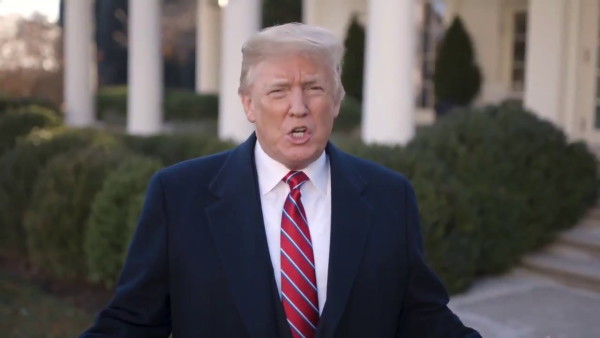

The ISIS caliphate is still not dead.
White House spokeswoman Sarah Sanders told reporters on Friday that the Pentagon “made the call” that ISIS had lost all of its former territory in Syria, according to a White House press pool report.
“When we asked if the caliphate was 100 percent eliminated, Sanders repeatedly said, ‘Yes,'” the pool report says.
Sanders referred further questions to the Pentagon, which went radio silent when reporters started asking if Syrian Democratic Forces had cleared the last ISIS holdouts in Syria.
A spokesman for Acting Defense Secretary Patrick Shanahan confirmed that Shanahan was on Air Force One with President Donald Trump on Friday, but he declined to say whether Shanahan told the president ISIS physical caliphate had finally been wiped out.
Other military officials referred questions to the Syrian Democratic Forces, which has yet to declare that the battle to crush ISIS’ last enclave around Baghouz, Syria, has been won.
After Sanders declared ISIS’ caliphate liberated, SDF spokesman Mustafa Bali tweeted on Friday that the battle is still going on: “eavy fighting continues around mount #Baghouz right now to finish off whatever remains of ISIS.”
CNN correspondent Ben Wedeman tweeted on Friday that he could see machine gun fire and coalition air strikes in the eastern end of Baghouz.
“I guess not everyone heard the White House statement re 100 percent elimination of #ISIS territory,” Wedeman tweeted.
Sanders’ comments marked the second time within 48 hours that the Pentagon has been put in the awkward position on not contradicting the White House.
Trump claimed on Wednesday that ISIS’ caliphate would be eliminated that evening. The following day, Chief Pentagon spokesman Charlie Summers refused to confirm Baghouz had still not been taken.
Even after ISIS is expelled from its last stronghold, it will continue fighting by waging an insurgency, Army Gen. Joseph Votel, head of U.S. Central Command, told Congress on March 7.
“We will see low level attacks,” Votel said. “We’ll see assassinations. We’ll see IED attacks. We’ll see ambush-type things as they begin to emerge from this. Therefore, what our focus has to be is working with our partners on the ground as we’re doing fairly effectively in Iraq right now. We are going to have to keep pressure on this.”
